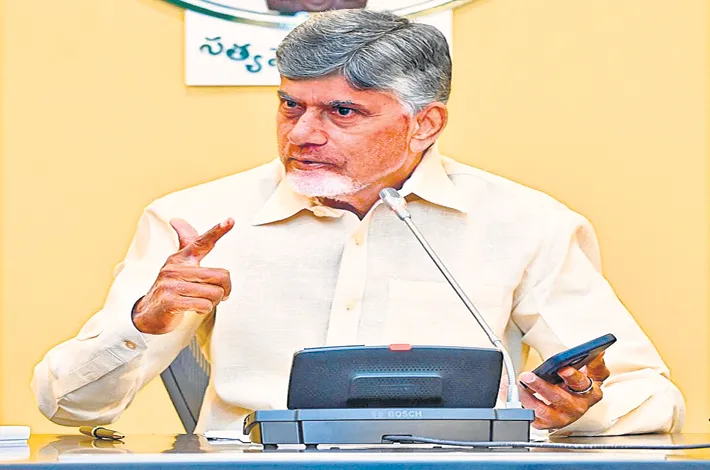AP govt to establish global institute of good governance in Amaravati
25-12-2024 12:00:00 AM

Metro India News | amaravati
In a move to bolster governance and enhance administrative efficiency, Andhra Pradesh Chief Minister N. Chandrababu Naidu announced the acceptance of the Training Policy recommendations from the Capacity Building Commission (CBC). This initiative lays the groundwork for establishing the Global Institute of Good Governance (GIGG) in Amaravati, which aims to spearhead transformative capacity-building efforts across the state.
The Chief Minister emphasized the significance of staying updated with the latest skills in a knowledge-driven economy. “The recommendations from the Capacity Building Commission will serve as the foundation for instituting GIGG, driving innovative governance practices in Andhra Pradesh,” Naidu said.
Training under this policy will prioritize creating a skilled and adaptive workforce, enabling better public service delivery and governance.
Naidu also met with a delegation from the CBC, led by its Chairman, Adil Zainulbhai, to discuss the initiative. The discussions revolved around developing training programs that align with global standards in governance and incorporating innovative methodologies to build a future-ready workforce.
The meeting highlighted the state government’s commitment to institutionalizing practices that promote efficiency, transparency, and accountability in governance. Images from the session showed the Chief Minister and officials engaging with the CBC delegation, solidifying plans for this ambitious project.
The Chief Minister highlighted the integration of cutting-edge technologies like Artificial Intelligence (AI) in key programs such as Mission Karmayogi. These programs will focus on targeted skill development, guided by a comprehensive skill census. The initiative aims to enhance capacity in critical departments, including Police, Revenue, Municipal Administration and Urban Development (MAUD), Panchayati Raj and Rural Development (PR&RD), Agriculture, Education, and Health.
Educated women should not be confined as housewives, says CM Chandrababu Naidu
By bringing work closer to them through work-from-home systems and co-working centers, we can unleash their potential and significantly boost economic activity,” the Chief Minister said
Metro India News | AMARAVATI
Andhra Pradesh Chief Minister N. Chandrababu Naidu emphasized the need to create employment opportunities for educated women, urging that they should not be restricted to domestic roles. Chairing a review meeting at the State Secretariat on Tuesday, the Chief Minister discussed the development of co-working spaces and neighborhood working spaces as avenues to empower women and tap into untapped human resources.
During the meeting, Naidu expressed concern that many educated women, especially in rural and semi-urban areas, are unable to work due to family responsibilities and a lack of nearby employment opportunities. “Women are highly talented and efficient, but many remain confined to their homes. By bringing work closer to them through work-from-home systems and co-working centers, we can unleash their potential and significantly boost economic activity,” the Chief Minister said.
He directed officials to implement proper training programs for educated women in rural areas, enabling them to utilize their skills effectively. “We need to create accessible working spaces and provide the necessary support to bring employment opportunities to these women,” he added.
The Chief Minister highlighted the potential of co-working spaces and work-from-home models as game-changers for employment generation. Officials informed him that the state aims to establish co-working centers by December 2025. A total of 22 lakh square feet of space, spread across government and private buildings, has already been identified for the initiative.
These co-working centers will cater to women in various parts of the state, providing them with the infrastructure needed to work efficiently. The government also plans to tailor these centers to the specific requirements of work-from-home professionals.
The Chief Minister also directed officials to identify suitable locations in at least five regions for the establishment of Ratan Tata Innovation Hubs. These hubs, he said, should serve as collaborative spaces that link educational institutions and industries in the surrounding areas. “The innovation hubs will drive creativity and entrepreneurship, offering opportunities for women and other professionals alike,” the Chief Minister explained.
The Chief Minister’s remarks align with his broader vision of inclusive economic development, emphasizing the importance of integrating women into the workforce. By leveraging co-working spaces and work-from-home opportunities, the state government aims to address unemployment among educated women while enhancing overall productivity.








